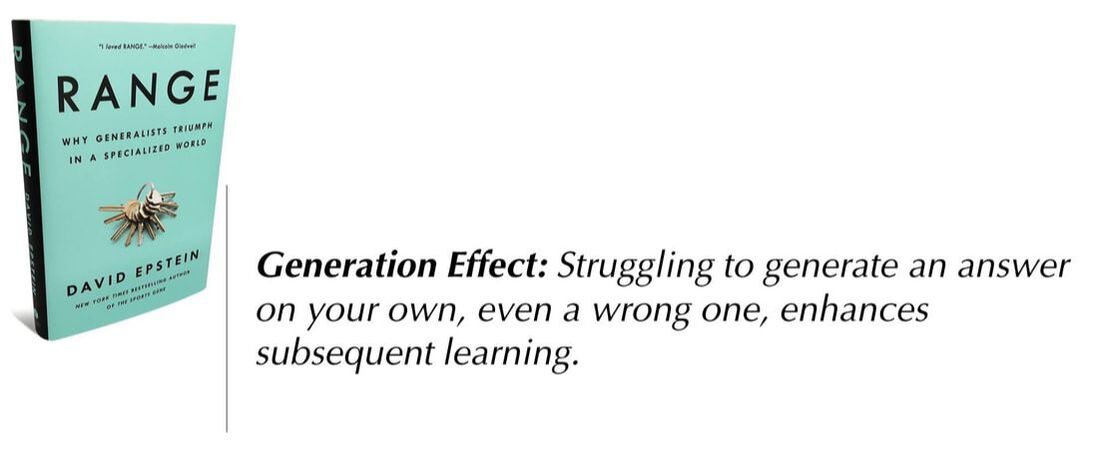Scott AndersonGenesis 9:8-17 † Psalm 25:1-10 † 1 Peter 3:18-22 † Mark 1:9-15 A video version of this sermon can be found here. Here’s a pro tip for you. When it comes to learning, repetition is less important than struggle. This is the insight of what is known as the generation effect according to David Epstein in his book Range. Struggling to generate an answer on your own, even a wrong one, enhances subsequent learning.[i] It helps learning over the long-term in at least two ways—it makes it stick and it enhances our ability to apply our learning broadly. The struggle—doing the work—is the key. Epstein explains, “for learning that is both durable (it sticks) and flexible (it can be applied broadly), fast and easy is precisely the problem.”[ii]
1 Comment
Scott Anderson1 Sam. 2:18-20, 26; † Ps.148; † Col.3:12-17; † Luke 2:41-52
So tell me if this sounds familiar: “O daughter, you are blessed by the Most High God above all other women on earth; and blessed be the Lord God, who created the heavens and the earth, who has guided you…” Let me stop right there to ask you: Is it familiar? It sounds like Elizabeth, bursting out in song when Mary shows up at her doorstep, doesn’t it? “Blessed are you among women, and blessed is the fruit of your womb. And why has this happened to me, that the mother of my Lord comes to me?” It sounds like a song for Mary, mother of Jesus, for gentle Mary, meek and mild. But, as you may have guessed, this isn’t that. It’s actually a quote from the book of Judith, which you and I both know is not in our Bible, that is, not in the Protestant canon. But it is in the Septuagint, which is the early Greek translation of the Hebrew Bible or Old Testament that Jesus would have known. It is also in the Catholic and Eastern Orthodox canons. So I think we can talk about her, and some of the other women who were, like Mary, highly favored. Scott AndersonIsaiah 53:4-12 † Psalm 91:9-16 † Hebrews 5:1-10 † Mark 10:35-45
“What is it we want when we can’t stop wanting?” asks Christian Wiman. Wiman, an American poet who was the editor of Poetry Magazine and now teaches at Yale, asks a question that might remind us of James’ and John’s request of Jesus: “Teacher, we want you to do for us whatever we ask of you… Grant us to sit…at your right…and at your left in your glory.”[i] “What is it we want when we can’t stop wanting?” In a way, Wiman answers his own question: “I say God,” he continues, “but…greed may be equally accurate, at least as long as God is an object of desire rather than its engine, end rather than means.”[ii] Now, to be fair, it is making something of an assumption to suggest that these two followers of Jesus or the other disciples who react once they hear the other two got there first are motivated by greed, pure and simple. In these days, we have enough of this simplistic, binary thinking that reduce others to a simple idea, to an enemy, to one who is good or is evil. Neither is Wiman thinking of this scripture in Mark. He’s reflecting on something more basic—about survival, and particularly our survival beyond ourselves. Scott AndersonFred Rogers first encountered a television in 1951 when he was a senior at Rollins College. He hated it. People were throwing pies at each other, doing goofy things. “Why is it being used in this way?” he wondered, when it could be such a “wonderful tool for education.”[i] He was so struck by its potential that he told his parents he wanted to delay his plans to become a Presbyterian minister in order to pursue a career in television. And so he did. In 1966—the year I was born—he created “Mister Rogers’ Neighborhood” on Pittsburgh public television. In 1968 it began a run of more than three decades on national public television. And it raised my generation and many after me.
It’s slow-paced, gentle approach eventually led the show to be outflanked by the manic movements of Sponge Bob Square pants—which we loved as parents—pie-throwing included, and the psychedelics of Adventure Time, among many others. I don’t think my 20-something kids were much influenced by Mr. Rogers, but I certainly was, and I’m frequently overtaken by nostalgia for him and what he represents. Scott Anderson Genesis 1:1-5 † Psalm 29:1-11 † Acts 19:1-7 † Mark 1:4-11
I bought an app for my iPhone a while ago. It was the second time ever I shelled out any money for one. I suppose it’s the principle of the thing that typically keeps me from paying for a phone app. It wasn’t a lot of money, just 99 cents, but for what I got, I’m sure you’ll be impressed. It does one thing, and it does it really well. Five times a day it sends a note, a simple reminder, “Don’t forget, you’re going to die.” That’s it. Pretty cool, huh? According to the app website, the invitations to stop and think about death arrive at random times throughout the day—at any moment, just like death. The app is called “WeCroak” which, I think you’ll agree, is a refreshingly straight-forward and direct name for a phone app. If you click on the message, it will take you to a quote about death, or, you might say, about life. Here’s one example from this week, from the Chilean poet Pablo Neruda: Death arrives among all that sound Like a shoe with no foot in it, Like a suit with no man in it. Or this more didactic one from the German philosopher Martin Heidegger: If I take death into my life, acknowledge it, and face it squarely, I will free myself from the anxiety of death and the pettiness of life—and only then will I be free to become myself. Scott Anderson Isaiah 61:10-62:3 † Psalm 148 † Galatians 4:4-7 † Luke 2:22-40
“The old man held the boy, but the boy held the old man.” The old antiphon, the poetic couplet the church has sung from ancient times during the feast of Simeon captures it perfectly, doesn’t it? The old man held the boy, but the boy held the old man. The old man Simeon, who has spent his waning years waiting for a Messiah, for a promise of better times for a people who will outlast him, of God’s goodness and justice, of peace and liberty and vitality once again being unleashed on the world was waiting on the temple grounds, waiting for God to show up. No doubt he had been there many other days waiting. Most days. Watching, praying, expecting. But on this day when that poor couple walked with their new baby and their meager offering into the temple to have their child marked as God’s and blessed, Simeon knew at once that the promise lay before him in their arms. The Spirit told him Luke tells us—three times to make sure we see the connection, hear the proof. And he reached out and took the child and cradled him, and his heart was full. And as so many actors do in Luke, his heart spilled out in song. The old man held the boy, but the boy held the old man. Scott AndersonReadings for this Sunday: Proverbs 31:10-31 | Psalm 1 | James 3:13-4:3, 7-8a | Mark 9:30-37 Questions for reflection:
In the midst of the struggle against apartheid, South African Archbishop Desmond Tutu walked by a construction site on a temporary sidewalk wide enough for only one person at a time to pass. A white man appeared on the other end, recognized the Bishop as one of the leaders instigating reform in the system of white privilege for which he stood, and said, “I don’t make way for gorillas.” At which Tutu stepped aside, made a deep sweeping gesture, and said, “Ah, yes, but I do.”[i] |
St. Andrew SermonsCategories
All
|



 RSS Feed
RSS Feed